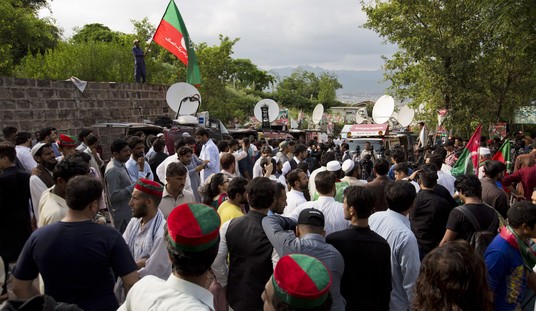Retired Air Force General Robert Lovell is testifying before the House Oversight and Government Reform Committee today, on Benghazi. Lovell’s testimony comes just after it has been revealed that President Obama’s hand-picked speechwriter on the National Security Council, Ben Rhodes, laid out in an email that the “goal” of communications after the attack was to make sure that President Obama and his policies were not blamed.
The administration quickly began blaming a YouTube video for sparking protests that led to the attack. But Gen. Lovell told Congress under oath that the video was never considered a motivator by the military.
U.S. military personnel knew early on that the Benghazi attack was a “hostile action” and not a protest gone awry, according to a retired general who served at U.S. Africa Command’s headquarters in Germany during the attack.
While the exact nature of the attack was not clear from the start, “what we did know early on was that this was a hostile action,” Retired Air Force Brigadier General Robert Lovell said in his prepared statement Thursday morning to members of the House Committee on Oversight and Government Reform. “This was no demonstration gone terribly awry.”
Lovell’s testimony contradicts the story that the Obama administration gave in the early days following the Sept. 11, 2012, attacks on the U.S. Consulate that left four Americans dead, including U.S. Ambassador Chris Stevens.
As deputy director of intelligence for AFRICOM, Lovell would have been in a position to know far more about Benghazi than speechwriter Ben Rhodes. Lovell also testified that the military could have done more, and under questioning from Rep. Jason Chaffetz (R-UT), acknowledged that the State Department was indecisive during the multi-hour attack.
CHAFFETZ: We had assets there in Europe. Did they actually go to the sound of the guns? Did they go into Benghazi?
LOVELL: No, sir, those assets didn’t.
CHAFFETZ: Why not?
LOVELL: There was looking for the State Department and the sense of deference to the desire of the State Department in terms of what they would like to have.
That points directly at Secretary of State Hillary Clinton, whose actions on the night of the attack remain under a veil of secrecy, along with the actions of the president himself.








Join the conversation as a VIP Member